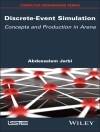KES International (KES) is a worldwide organisation that provides a professional community and association for researchers, originally in the discipline of Knowledge Based and Intelligent Engineering Systems, but now extending into other related areas. Through this, KES provides its members with opportunities for publication and beneficial interaction. The focus of KES is research and technology transfer in the area of Intelligent S- tems, i.e. computer-based software systems that operate in a manner analogous to the human brain, in order to perform advanced tasks. Recently KES has started to extend its area of interest to encompass the contribution that intelligent systems can make to sustainability and renewable energy, and also the knowledge transfer, innovation and enterprise agenda. Involving several thousand researchers, managers and engineers drawn from u- versities and companies world-wide, KES is in an excellent position to facilitate — ternational research co-operation and generate synergy in the area of artificial intel- gence applied to real-world ‘Smart’ systems and the underlying related theory. The KES annual conference covers a broad spectrum of intelligent systems topics and attracts several hundred delegates from a range of countries round the world. KES also organises symposia on specific technical topics, for example, Agent and Multi Agent Systems, Intelligent Decision Technologies, Intelligent Interactive M- timedia Systems and Services, Sustainability in Energy and Buildings and Innovations through Knowledge Transfer. KES is responsible for two peer-reviewed journals, the International Journal of Knowledge based and Intelligent Engineering Systems, and Intelligent Decision Technologies: an International Journal.
Содержание
Advances in Multimedia Services in Intelligent Environments – Integrated Systems.- Use of GIS and Multi-Criteria Evaluation Techniques in Environmental Problems.- Integrating Multimedia GIS Technologies in a Recommendation System for Geotourism.- Lighting Design Tools for Interactive Entertainment.- Utilization of Fuzzy Rules in Computer Character Animation.- Instructional Design of a Requirements Engineering Education Course for Professional Engineers.- Building Intelligent E-Learning Systems by Activity Monitoring and Analysis.- Supporting the Search for Explanations of Medical Exceptions.- Security in Medical Telediagnosis.- Audio Content Analysis in the Urban Area Telemonitoring System.- Video Content Analysis in the Urban Area Telemonitoring System.- Enterprise Attention Management.- e-Welfare as a Client Driven Service Concept.- Brain-Computer Interface (BCI): Types, Processing Perspectives and Applications.












